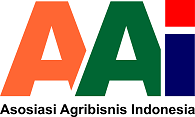How Do Innovation, Quality, And Supply Chain Management Affect Customer Satisfaction in Organic Food Products?: Evidence From Jabodetabek, Indonesia
Abstract
This study investigates the influence of product innovation, supply chain management, and product quality on customer satisfaction in the organic food sector. A quantitative approach was employed using survey data collected from 120 organic food consumers in the Jabodetabek area. The data were analyzed using multiple linear regression analysis to determine the impact of each variable. The findings indicate that all three factors product innovation, supply chain management, and product quality have a significant and positive influence on customer satisfaction. Notably, innovations in eco-friendly packaging, product variety, and transparency in supply chain operations contribute significantly to enhancing customer perceptions and trust. These results underscore the critical role of integrated management practices and continuous product development in sustaining customer loyalty and satisfaction in the growing organic food market.
Keywords
References
Adade, F. B. (2022). Oil Palm (Elaeis guineensis) Cultivation and Food Security in the Tropical World. In Elaeis guineensis (pp. 1–14). IntechOpen. https://doi.org/10.5772/intechopen.98486
Alesiuniene, K. S., Simanaviciene, Z., Bickauske, D., Mosiiuk, S., & Belova, I. (2021). Increasing the effectiveness of food supply chain logistics through digital transformation. Independent Journal of Management & Production, 12(6), 677-701. http://dx.doi.org/10.14807/ijmp.v12i6.1748
Bhowmick, A., & Seetharaman, A. (2023, March). Impact of product quality on customer satisfaction: A Systematic Literature Review. In Proceedings of the 2023 7th International Conference on Virtual and Augmented Reality Simulations (pp. 93-99). http://dx.doi.org/10.1145/3603421.3603434
Buer, S. B. (2022). Supply Chain Quality Management Practices and Competitive Advantage of Food Processing Firms in Ghana: the Moderating Role of Innovation (Doctoral dissertation, University of Cape Coast). http://hdl.handle.net/123456789/10736
Creignou, M., & Nuangjamnong, C. (2022). The influencing factors of green product quality and price on green customer satisfaction and loyalty: a case study of the fashion industry. Global Scientific and Academic Research Journal of Multidisciplinary Studies, 1(6), 42-55. https://gsarpublishers.com/journals-gsarjebm-home/
Gajdić, D., Mesić, Ž., & Petljak, K. (2021). Preliminary research about producers’ perceptions of relationship quality with retailers in the supply chain of organic food products in Croatia. Sustainability, 13(24), 13673. https://doi.org/10.3390/su132413673
Gunawan, R. R., Siagian, H., Tarigan, Z. J. H., & Jie, F. (2024). The role of supplier-buyer relationship in enhancing business performance through supply chain management practice, total quality management implementation and product innovation. https://doi.org/10.5267/j.uscm.2024.5.022
Hendra, L. (2017). Impact of brand image, product quality, and self-efficacy on purchase decisions on private label rights products. An empirical study. Expert Journal of Business and Management, 5(2). https://business.expertjournals.com/ark:/16759/EJBM_508hendra74-82.pdf
Hengboriboon, L., Naruetharadol, P., Ketkeaw, C., & Gebsombut, N. (2022). The impact of product image, CSR and green marketing in organic food purchase intention: Mediation roles of corporate reputation. Cogent Business & Management, 9(1), 2140744. https://doi.org/10.1080/23311975.2022.2140744
Ibrahim, M. M., Assery, S., Kusnadi, I. H., & Faizah, A. (2024). Application of the Human Opportunity Index in Evaluating the Effectiveness of the Administration Process and Its Implication on Service Quality in Healthcare Units. Jurnal Sistim Informasi dan Teknologi, 1-5. https://doi.org/10.60083/jsisfotek.v6i2.343
Kaswengi, J., & Lambey-Checchin, C. (2020). How logistics service quality and product quality matter in the retailer–customer relationship of food drive-throughs: The role of perceived convenience. International Journal of Physical Distribution & Logistics Management, 50(5), 535-555. https://doi.org/10.1108/IJPDLM-01-2019-0036
Krisandi, R., Amaliyah, F. F., Syarifudin, E., Peristiwo, H., & Jazuli, S. (2024). The Influence of Market Orientation, Product Innovation, and Halal Supply Chain on the Marketing Performance of Muslim MSMEs in Tangerang. AN NUR: Jurnal Studi Islam, 16(02), 296-312. https://doi.org/10.37252/annur.v16i02.958
Lakatos, E. S., Nan, L. M., Bacali, L., Ciobanu, G., Ciobanu, A. M., & Cioca, L. I. (2021). Consumer satisfaction towards green products: Empirical insights from romania. Sustainability, 13(19), 10982. https://doi.org/10.3390/su131910982
Loatong, P., Parichatnon, K., Parichatnon, S., & Rithinyo, M. The Impacts of Green Supply Chain Management and Product Innovation on Marketing Performance in Thailand's Processed Food Industry. Available at SSRN 5192788. http://dx.doi.org/10.2139/ssrn.5192788
Meisya, P., & Surjasa, D. (2022). The Effect of Market Orientation on Firm Performance in F&B Business Sector: The Role of Supply Chain Integration and Firm Innovativeness. Jurnal Manajemen Teori Dan Terapan, 15(1). https://e-journal.unair.ac.id/JMTT/article/view/33635
Mesic, Ž., Molnár, A., & Cerjak, M. (2018). Assessment of traditional food supply chain performance using triadic approach: the role of relationships quality. Supply Chain Management: An International Journal, 23(5), 396-411. http://dx.doi.org/10.1108/SCM-10-2017-0336
Montororing, Y. D. R., & Nurprihatin, F. (2021, March). Model of quality control station allocation with consider work in process, and defect probability of final product. In Journal of Physics: Conference Series (Vol. 1811, No. 1, p. 012013). IOP Publishing. http://dx.doi.org/10.1088/1742-6596/1811/1/012013
Nurprihatin, F., Rembulan, G. D., Andry, J. F., Immanuella, S., & Widiwati, I. T. B. (2023). Quality Control Analysis of Porcelain Products Using Overall Equipment Effectiveness and Statistical Quality Control Methods. Management and Production Engineering Review. http://dx.doi.org/10.24425/mper.2023.147195
Reihana, N. S., Nurprihatin, F., Islam, S. S., Redi, A. A. N. P., Young, M. N., & Prasetyo, Y. T. (2024, January). Application of Process Failure Modes and Effect Analysis for Acceptance Quality Limit in Lot Sentencing. In Proceedings of the 2024 7th International Conference on Computers in Management and Business (pp. 212-218). http://dx.doi.org/10.1145/3647782.3647815
Rini, E. S., Ginting, P., & Sembiring, B. K. F. (2017, November). Impact of eCommerce service quality, recovery service quality, and satisfaction in Indonesia. In 2017 International Conference on Sustainable Information Engineering and Technology (SIET) (pp. 35-40). IEEE. http://dx.doi.org/10.1109/SIET.2017.8304105
Sharma, M., Alkatheeri, H., Jabeen, F., & Sehrawat, R. (2022). Impact of COVID-19 pandemic on perishable food supply chain management: a contingent Resource-Based View (RBV) perspective. The International Journal of Logistics Management, 33(3), 796-817. http://dx.doi.org/10.1108/IJLM-02-2021-0131
Song, H., Turson, R., Ganguly, A., & Yu, K. (2017). Evaluating the effects of supply chain quality management on food firms’ performance: The mediating role of food certification and reputation. International Journal of Operations & Production Management, 37(10), 1541-1562. http://dx.doi.org/10.1108/IJOPM-11-2015-0666
Soosay, C. A., Hyland, P. W., & Ferrer, M. (2008). Supply chain collaboration: capabilities for continuous innovation. Supply chain management: An international journal, 13(2), 160-169. http://dx.doi.org/10.1108/13598540810860994
Sotirelis, P., & Grigoroudis, E. (2021). Total quality management and innovation: Linkages and evidence from the agro-food industry. Journal of the Knowledge Economy, 12(4), 1553-1573. https://link.springer.com/article/10.1007/s13132-020-00683-9
Sudirjo, F., Dewi, L. K. C., Mustafa, F., & Santosa, S. (2023). Analysis Of The Influence Of Consumer Behavior, Product Attributes And Brand Image On Purchasing Decisions Of Pharmaceutical Industry Products Consumers. JEMSI (Jurnal Ekonomi, Manajemen, dan Akuntansi), 9(6), 2432-2437. https://doi.org/10.35870/jemsi.v9i6.1648
Sujaya, H., & Aithal, P. S. (2022). Quantitative ABCD analysis of organic food product and its impact on purchase intention. International Journal of Management, Technology, and Social Sciences (IJMTS), 7(1), 254-278. https://doi.org/10.47992/IJMTS.2581.6012.0190
Surya, A. P., & Kurniawan, A. (2021). The effect of product quality and perceived price on customer satisfaction and loyalty: Study on halal cosmetic products in Indonesia. International Journal of Economics, Business and Management Research, 5(04), 1-17. https://ijebmr.com/link/722
Tannady, H., Nurprihatin, F., & Hartono, H. (2018). Service quality analysis of two of the largest retail chains with minimart concept in Indonesia. Business: Theory and Practice, 19, 177-185. http://dx.doi.org/10.3846/btp.2018.18
Teng, S. L., Zailani, S., Rahman, M. K., Bhuiyan, M. A., & Mamun, A. A. (2024). Impact of service innovation and digital supply chain capability on risk protection in supporting online foods delivery. Kybernetes, 53(7), 2483-2501. http://dx.doi.org/10.1108/K-08-2022-1082
Wicaksono, T., & Illés, C. B. (2022). From resilience to satisfaction: Defining supply chain solutions for agri-food SMEs through quality approach. Plos one, 17(2), e0263393. https://doi.org/10.1371/journal.pone.0263393
Widijastuti, E., & Mulyo, J. H. (2021, November). Effect of application of supply chain management practices on certified organic rice supply chain performance. In IOP Conference Series: Earth and Environmental Science (Vol. 892, No. 1, p. 012038). IOP Publishing. http://dx.doi.org/10.1088/1755-1315/892/1/012038
DOI: https://doi.org/10.37046/jaj.v6i1.31301
Refbacks
- There are currently no refbacks.
Copyright (c) 2024 Authors

This work is licensed under a Creative Commons Attribution-NonCommercial-ShareAlike 4.0 International License.
Jambura Agribusiness Journal (P-ISSN: 2685-5860, E-ISSN: 2685-5771) is licensed under a Creative Commons Attribution-NonCommercial-ShareAlike 4.0 International License. Powered by Public Knowledge Project OJS










